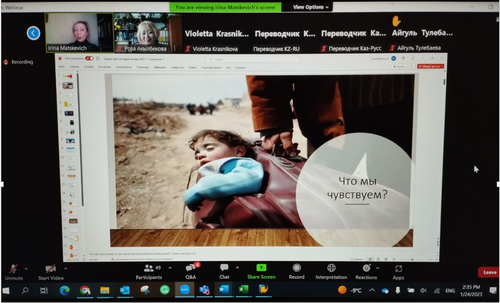From January 24 to 27, 2023, online trainings were held on the ethical principles of communication with children experiencing difficulties in the educational process: children in migration processes, children requiring a special approach in obtaining knowledge. The training was attended by schools in Astana, Almaty and Shymkent, involved in the Akelius pilot project.
The training was led by Irina Matskevich, clinical and family psychologist, Candidate of Psychological Sciences, and Roza Akylbekova, human rights activist and deputy head of the International Bureau for Human Rights and Rule of Law.
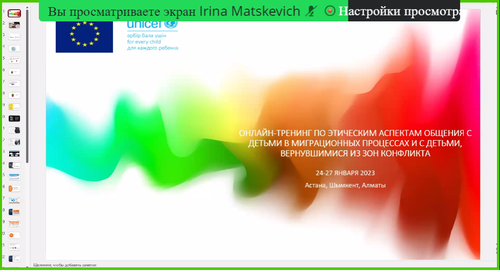
The participants of the training got acquainted with the national legislation on the rights of minors, and then worked out techniques for including children in the educational process and overcoming ethical dilemmas.
As Irina Matskevich recalled, when working with children, it is necessary to rely on the following documents:
- Constitution of the Republic of Kazakhstan (Chapter 2), (Article 27)
- Convention on the Rights of the Child (Articles 14, 19, 28, 29)
- Law of the Republic of Kazakhstan "On the Rights of the Child" (Article 10)
- Code of the Republic of Kazakhstan "On marriage (matrimony) and family"
- Law of the Republic of Kazakhstan "On Education" dated July 27, 2007 No. 319-III (as of January 11, 2020)
- Law on Population Migration (as of 11.07.2021)
- Order of the Minister of Education and Science of the Republic of Kazakhstan dated May 11, 2020 No. 190 (registered with the Ministry of Justice of the Republic of Kazakhstan on May 12, 2020 No. 20619)
- Decree of the Government of the Republic of Kazakhstan dated September 29, 2017 No. 602 On approval of the Concept of the Migration Policy of the Republic of Kazakhstan for 2017-2021 and the Action Plan for the implementation of the Concept of the Migration Policy of the Republic of Kazakhstan for 2017-2021.
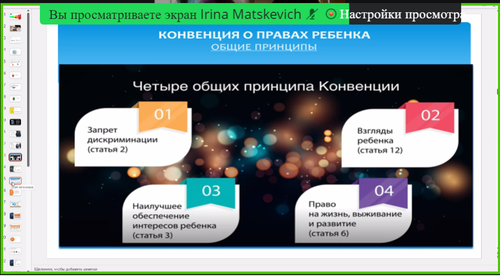
“We have three cases. The first is about the girl Ashrafi , who did not want to take off her headscarf. The second is about Azat, who returned from the war zone. The third is about the teacher Aigul Sovietovna. Discuss these cases in groups and write the results of the discussions on the board using stickers,” Irina Matskevich said.
The participants of the training indicated what ethical risks they see in each situation and suggested options for overcoming them.
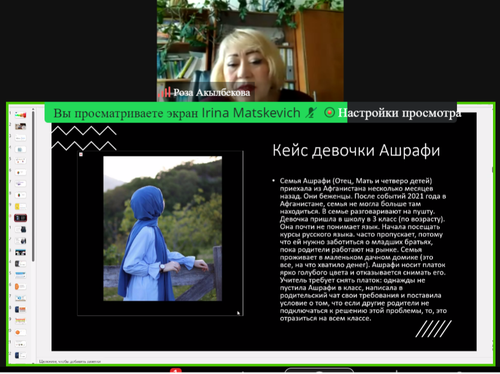
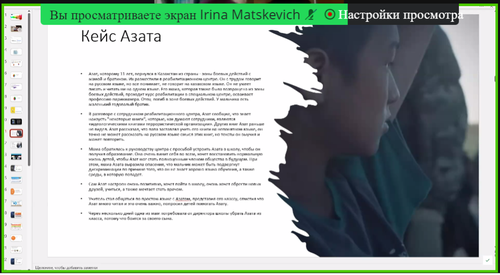
“Don't try to solve the problem broadly, mark 1-3 points for each question ,” Irina Matskevich advised the participants of the training.
She noted that none of the images used in the case correspond to the real situation or show real children.
“All photos are taken to illustrate situations. All the situations presented in the training mostly have real stories, but also include significant changes to avoid identification with any child and family,” she warned.
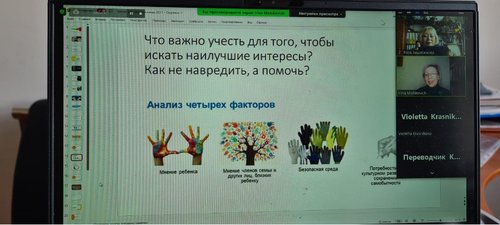
After group work, human rights activist Irina Matskevich spoke about the principles of pedagogical ethics, adaptation, and integration of children with similar fates and described the portrait of a child who returned from conflict zones and his family situation. Human rights activist Roza Akylbekova, in turn, spoke about international standards and guidelines in relation to children (“Convention on the Rights of the Child”, “The Hague Convention”, etc.).
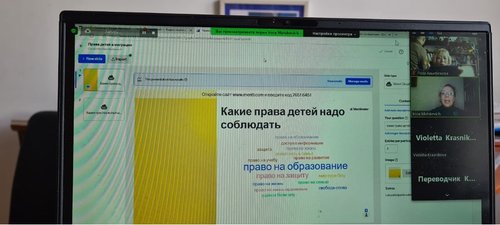
Having gained new knowledge, the participants of the training started working with cases in the second round and supplemented their answers. For convenience, team members used an interactive whiteboard. The joint work ended with a discussion of the results and the adoption of views and strategies for accompanying children in the migration process.
